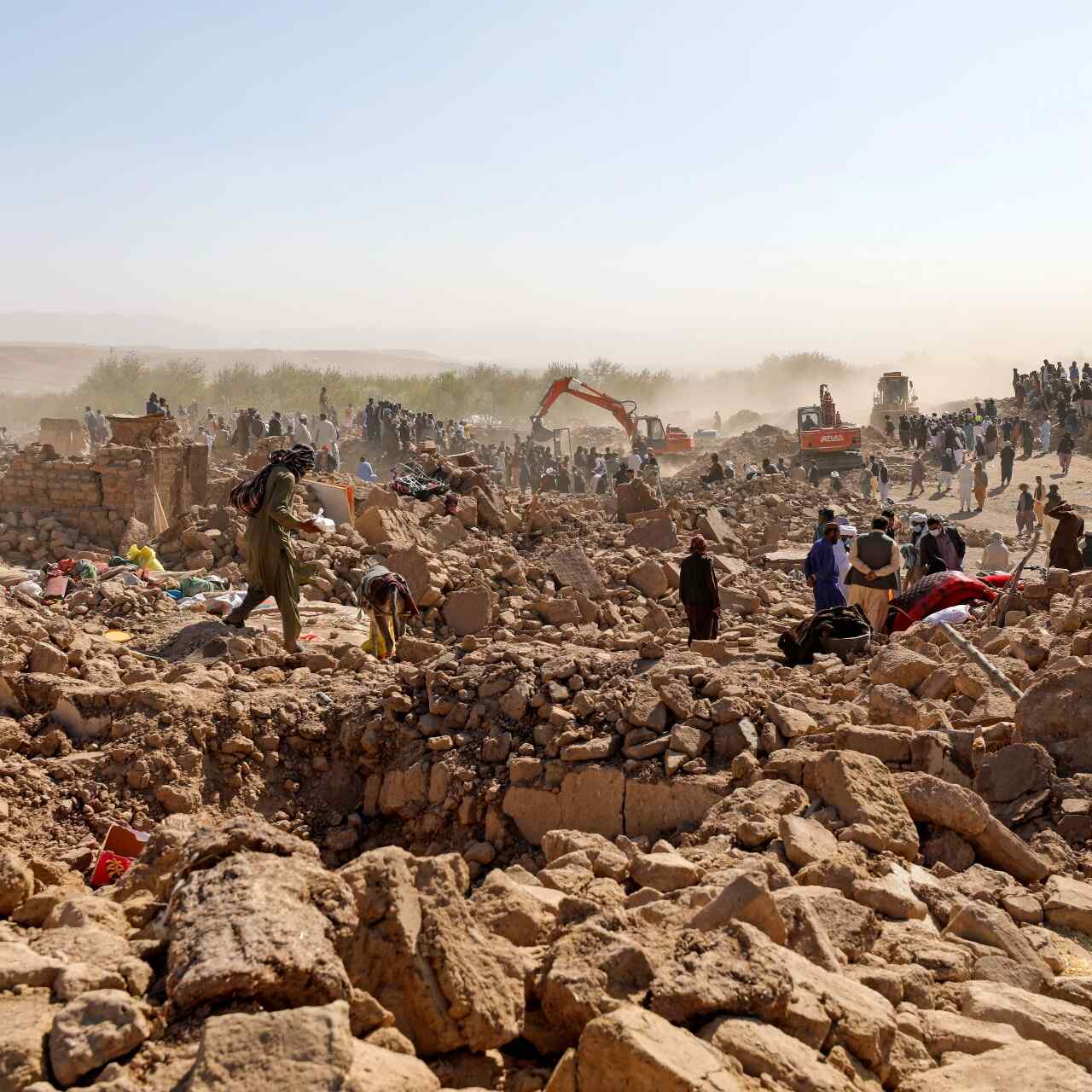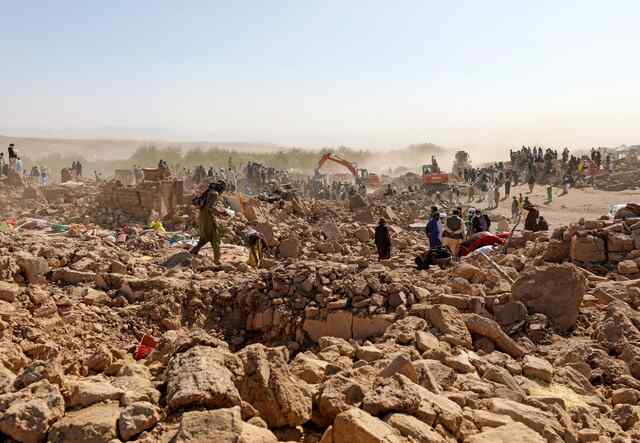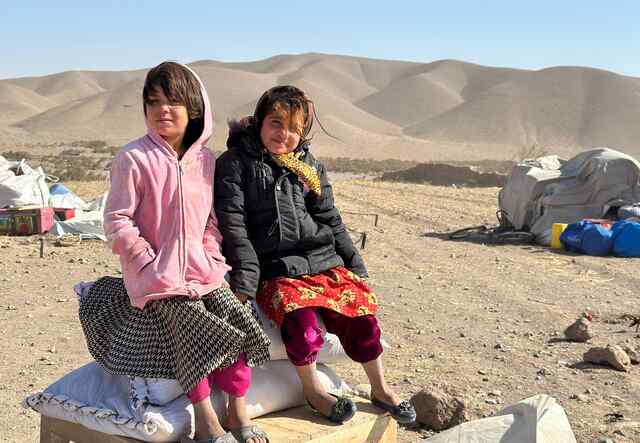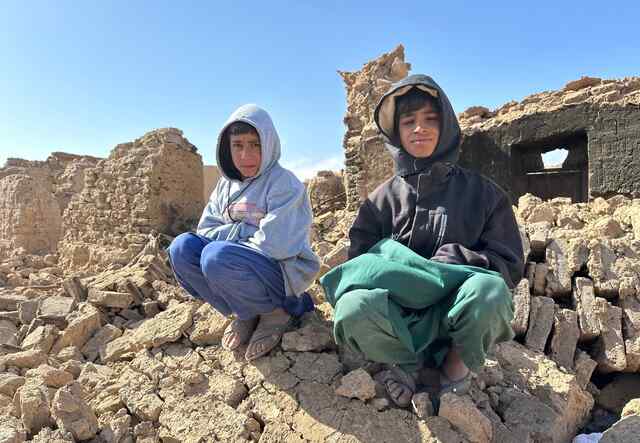
How to help after the earthquake in Afghanistan
Get the latest on the impacts of the 6.3 magnitude earthquake that struck Herat province 7 October.

Get the latest on the impacts of the 6.3 magnitude earthquake that struck Herat province 7 October.
On 7 October 2023 at around 11:00 local time, a devastating 6.3 magnitude earthquake struck 25 miles west of Herat City in Herat Province, western Afghanistan. Following the initial quake, several aftershocks rippled through the region, affecting neighbouring provinces of Badghis and Farah as well.
By 15 October 2023, two additional 6.3 magnitude earthquakes had struck Herat Afghanistan, exacerbating humanitarian needs in the region.
The latest official reports paint a grim picture: over 1,300 lives lost and 1,853 people - two thirds of whom are women and girls - injured across eleven villages of Zindajan district, Herat Province. More than 43,000 people have been affected.
Entire communities have been razed to the ground, leaving behind a trail of destruction and despair. In the immediate aftermath, many families fled their homes, leading to a significant displacement in Herat city centre.
A dire situation unfolded after the first earthquake struck. Hundreds of homes and critical infrastructure were obliterated. Now, thousands of people find themselves grappling with the harsh reality of their circumstances. Nights are bitterly cold, with temperatures plummeting to around 10 degrees celsius. As winter approaches, families are forced to sleep under the open skies, battling freezing conditions, lack of essential supplies, and looming threats to their safety.
The two most recent earthquakes have caused further destruction, driving displacement and needs in vulnerable communities.

Adding to this crisis is the pre-existing vulnerability of the region. Afghanistan was already reeling from the aftermath of recent floods and political instability even before this earthquake. A staggering 29 million people were in desperate need of humanitarian assistance. This earthquake has only worsened the plight of these vulnerable communities. The situation is especially dire for women and children, who now face increased risks of exploitation and abuse in their displacement, further intensifying their vulnerability.
“This is yet another tragic blow for Afghanistan, particularly Herat where over a third of the population is already malnourished,” says IRC Afghanistan director, Salma Ben Aissa. “Displacement is a major concern, and the IRC predicts that the number of households affected by the earthquakes will rise dramatically as families make the decision to relocate to safer areas of the country."
An IRC assessment, which surveyed 5,181 households across 5 districts, has indicated that:

In times as challenging as these, unity and collaboration are paramount. The IRC is working in coordination with other non-governmental organisations (NGOs). These collaborative initiatives are vital to ensure a swift and effective response, offering a glimmer of hope amid the darkness that has befallen these communities.
The International Rescue Committee (IRC) is closely monitoring the situation in the aftermath of the devastating earthquake. In collaboration with multiple NGOs, we are working to assess the full extent of the damage and provide essential assistance to those in need. This collaborative effort underscores the urgency of the situation and the importance of a unified humanitarian response.
The IRC has swiftly mobilised nine emergency response teams in response to the crisis, prioritising medical care to address the health needs of those impacted by the earthquake. This includes the deployment of six mobile health teams that are delivering humanitarian assistance and medical services to affected communities in the Zinda Jan, Ghoryan, Rabag Sangi and Enjil districts.
The IRC has also completed a comprehensive needs assessment - a pivotal step in understanding the specific requirements of affected families. This assessment will guide the distribution of crucial aid, including cash assistance and emergency non-food items. By tailoring the assistance to the unique needs of each family, we can provide targeted support, ensuring that the aid provided is not only timely but also precisely tailored to alleviate the immediate challenges faced by the earthquake-affected communities.

Stay updated about the developing crisis in Afghanistan and learn how the IRC has been providing services in the country since 1988.